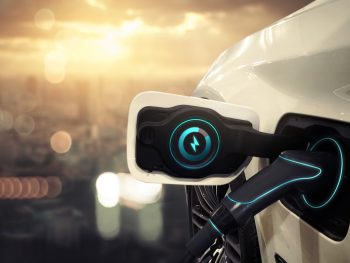Off-peak ultra-rapid charging still cheaper than petrol, finds AA Recharge Report
EV charging costs saw a slight rise in January but off-peak ultra-rapid charging still works out cheaper than fuelling a petrol car.

The impact of the 2p/kWh energy price cap increase on domestic charging was matched on other flat-rate chargers
The AA EV Recharge Report for January 2024 shows the impact of the 2p/kWh energy price cap increase on domestic charging was matched by a 2p/kWh rise on flat-rate fast, rapid and ultra-rapid charging.
Meanwhile, peak and off-peak rates in ultra-rapid charging, the fastest type of charging available, increased by 1p/kWh.
Despite this increase, off-peak rates for ultra-rapid chargers continues to remain cheaper per mile compared to petrol – even with pump prices falling for 15 weeks until the middle of January. All other rates remained static compared to the end of 2023.
As January saw the introduction of the ZEV mandate, whereby manufacturers have a target of selling at least 22% of new car stock as zero tailpipe emission this year to avoid fines, the AA expects to see more drivers introduced to the public charging network for the first time this year.
To help encourage the transition to EVs and help consumers without dedicated off-street parking, it’s reiterating its call for VAT on public chargers to be set at 5% to match the rate set on domestic energy costs.
Latest figures from the Department for Transport show that there were 53,677 publicly available charge points as of 1 January 2024, an increase of 45% compared to January 2023 (37,055). The AA is predicting a further boom in the public charging network throughout the year.
AA EV Recharge Report, January 2024. Flat rates:
| Charge Type | Speed | Jan Ave (p/kWh) | Dec Ave (p/kWh) | Difference (p/kWh) | Cost to charge to 80% | Pence per mile (p/mile) | ||||||
| Domestic | Up to 7kW | 29 | 27 | 2 | £11.60 | 6.52 | ||||||
| Slow | Up to 7kW | 52 | 52 | 0 | £20.80 | 11.69 | ||||||
| Fast | 8-22kW | 60 | 58 | 2 | £24.00 | 13.48 | ||||||
| Rapid | 23-100kW | 74 | 72 | 2 | £29.60 | 16.63 | ||||||
| Ultra-rapid | +101kW | 77 | 75 | 2 | £30.80 | 17.30 | ||||||
| PETROL | 139.80 ppl | 141.74 ppl | -1.94 ppl | £44.74 | 13.35 | |||||||
AA EV Recharge Report, January 2024. Peak and Off-Peak rates:
| Charge Type | Speed | Jan Ave (p/kWh) | Dec Ave (p/kWh) | Difference (p/kWh) | Cost to charge to 80% | Pence per mile (p/mile) |
| Slow Off-Peak | Up to 7kW | 43 | 43 | 0 | £17.20 | 9.66 |
| Slow Peak | Up to 7kW | 67 | 67 | 0 | £26.80 | 15.06 |
| Fast Off-Peak | 8-22kW | 75 | 75 | 0 | £30.00 | 16.85 |
| Fast Peak | 8-22kW | 79 | 79 | 0 | £31.60 | 17.75 |
| Rapid Off-Peak | 23-100kW | 75 | 75 | 0 | £30.00 | 16.85 |
| Rapid Peak | 23-100kW | 79 | 79 | 0 | £31.60 | 17.75 |
| Ultra-rapid Off-Peak | +101kW | 58 | 57 | 1 | £23.20 | 13.03 |
| Ultra-rapid Peak | +101kW | 66 | 65 | 1 | £26.40 | 14.83 |
| PETROL | 139.80 ppl | 141.74 ppl | -1.94 ppl | £44.74 | 13.35 | |
Jack Cousens, head of roads policy for the AA, said: “While the energy price cap nudged up charging prices, charging from home remains the cheapest way to power an electric car, even if drivers don’t have a special EV tariff.
“Off-peak ultra-rapid charging continues to be cheaper per mile than petrol, and that gap will begin to widen following the recent upturn in pump prices.
“However, the Government can do more to encourage drivers to make the switch to electric cars by cutting VAT to 5% on public charging. That would help all drivers, especially those without a driveway or a dedicated parking space.”
Average prices are the PAYG options without connection fee as of 18 December 2023. Subscriptions are available for all charge point speeds which can unlock a cheaper p/kWh, however rates vary across provider.
Charging calculations are based on adding 80% to a Vauxhall Corsa Electric, 50kW, with a WLTP range of 222 miles, while the petrol comparison is with a Vauxhall Corsa 75hp 1.2-litre and an 80% refuel.












